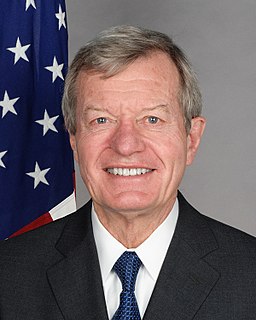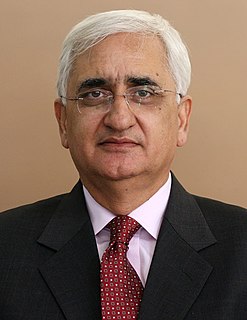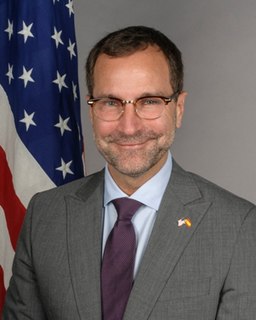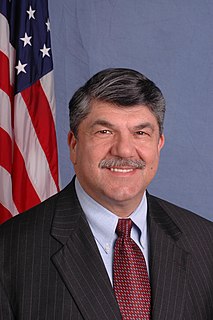A Quote by Max Baucus
Any bilateral trade and investment agreement must be comprehensive and address the full range of barriers to U.S. goods and services if it is to receive broad, bipartisan congressional support.
Related Quotes
There's a whole range of areas that we'll be looking at, so I'm not at this very early stage going to specify any particular areas. As you will know, there will be a limit to how far we can go in terms of a formal free trade agreement until we've actually left the European Union. I think there is much that we [with Donald Trump] can do in the interim in terms of looking at how we can remove some of the barriers to trade in a number of areas.
































